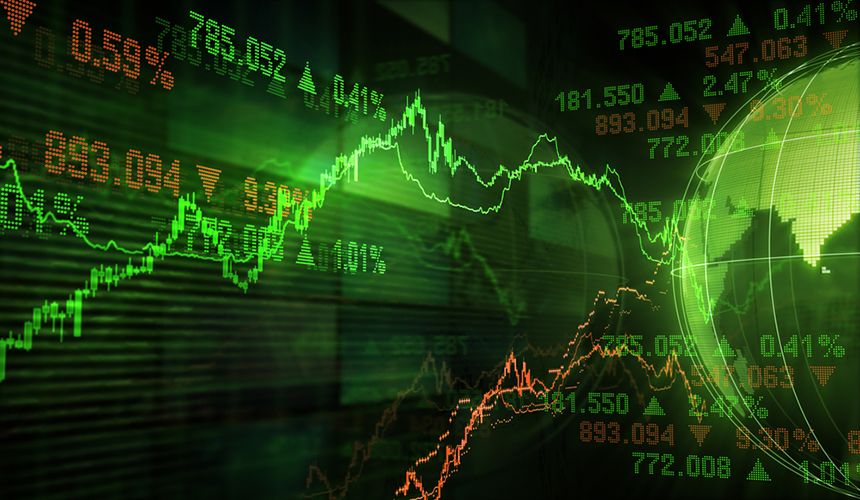Currency Trading: A Beginner's Guide to the World of Forex

The currency trading market is one of the largest financial markets in the world. Thanks to advances in electronic trading, this market has exploded into the scene with an estimated $5 trillion daily turnover- A figure that dwarfs all other markets in size and value.
Contents
Consequently, the market has become accessible to even small retail investors. However, just because the market has become more accessible, doesn't mean that it's widely understood. In this article, we uncover what currency trading is, the basics of the industry, and how you, too, can become a currency trader.
What is Currency Trading?
Currency trading is the act of purchasing and selling foreign currency, mainly for speculation. It's also referred to as forex currency trading. It's how individual traders, organizations, and central banks exchange one currency into another. While most of the trading is done for practical reasons, the majority of these transactions are done to make a profit. Foreign currency values appreciate and depreciate towards one another due to a variety of factors such as geopolitics and economics. These daily price movements bring about an opportunity to earn profits.
The volume of daily currency conversions makes the price movements of certain currencies volatile. Not to mention, they make the market extremely liquid. Therefore, traders actively speculate on which way foreign exchange rates are likely to turn in the future. Most of these traders trade currencies via the internet through brokerage firms. In contrast to other financial markets, online currency trading does not have a physical place or central exchange. Instead, trading takes place 24 hours every day. Thus, excess liquidity, currency volatility, and 24-hour unrestricted trading are some of the unique features of currency trading that make it attractive to a majority of traders.
Currency Trading Basics
In the forex market, currencies are denoted by three letter symbols. The most commonly traded currencies along with their symbols include Euros (EUR), United States Dollar (USD), Canadian Dollar (CAD), British Pound (GBP), Japanese Yen (JPY), Australian Dollar (AUD), and Swiss Franc (CHF).They are also referred to as major currencies. All other currencies are referred to as minor currencies. Some of the main minor currencies include the New Zealand Dollar (NZD), the South African Rand (ZAR), and the Singapore Dollar (SGD). Forex transactions in foreign currency trading are quoted in pairs because as you buy one currency, you are also selling another.
In a currency pair, the first currency is the base currency, while the second currency is the quote currency. The rate or price that is quoted is the amount of the quote currency required to purchase one unit of the base currency. For instance, if EUR/USD has an ask price of 1.2327, that means you can buy one Euro for 1.2327 US dollars. Nearly all currency pairs consist of five significant digits with a decimal point after the first digit. The smallest unit of the price of any foreign currency is known as a pip. It's the smallest change in the fourth decimal place, that is, 0.0001.
How to Trade Currency
All that you require to dive into the world of forex trading is a computer and an internet connection. You also don't need a considerable sum of cash to start. You can initially begin trading with a minimal amount. Better yet, you can start practicing with a demo account without the need to deposit any money. However, once you do consider to start real trading, we advise that you follow the following steps to ensure success.
- Choose a Broker
The first thing that you need to do is choose a broker. Choosing a reliable broker is one of the single most critical factors to currency market trading. There are dozens of online brokers out there, but your best bet is to go with one of the leaders.
- Pick the Right Product
The forex market has evolved so much such that there are different ways to tap the market. Therefore, the first question is to ask yourself what you are looking to do. Is it investing, hedging, or trading. Forex instruments can be used for all these three purposes. However, some are more suitable than others.
- Finally, Decide What to Trade
The best choice is to lean on your strengths and trade only what you know and understand. Most new traders focus on trading their local currency, especially if it's one of the actively traded ones. Doing so gives them an edge as they are on the ground and have an acute understanding of how the economy is performing.
Final Thoughts
Currency trading carries an extremely high level of risk and may not be suitable for everyone. Therefore, before deciding to take up currency trading, you should seriously consider your investment objective, experience level, and risk appetite. Finally, remember that there is a possibility that you could lose some or all of your initial investment. Therefore, never invest any money that you are not comfortable losing. In case of any doubts, we recommend you seek advice from a professional financial advisor.

























